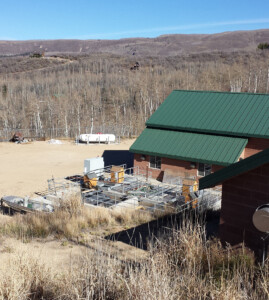by Heather Jennings, PE

Here’s a case study involving Microplex® JS.
Project Summary
Each year a summer camp in Utah becomes inundated with campers. The camp’s wastewater treatment plant goes dormant during the winter months with only occasional flows. The biomass becomes very inactive and in years past became overloaded and upset when the high organic load arrived at the plant at the beginning of the camping season. After battling with the plant year after year to get it to accommodate the high spring load and function correctly, the operator looked for a way to jump-start the system.
Through use of Microplex® JS, the plant quickly acclimatized to the higher load and met the system’s permit requirements. In addition, the operator is very happy with the results of the inoculation with Microplex® JS and how the plant continues to function during the camp’s open season. He plans to continue to use Microplex® JS at the start of each year.
Click here to read the full report.
Click here for more information regarding Microplex® JS.
Related Posts

How the “Three Sisters” Fed a New World
Discover how the Native American “Three Sisters” farming system, corn, beans, and squash, created a powerful, regenerative growing method that helped feed the New World and shaped sustainable agriculture long before modern science.

MICROPLEX® JS Jump-Starts Summer Camp Wastewater Treatment Plant
Each year a summer camp in Utah becomes inundated with campers. The camp’s wastewater treatment plant goes dormant during the winter months with only occasional flows. The biomass becomes very inactive and in years past became overloaded and upset when the high organic load arrived at the plant at the beginning of the camping season.

Corn Breaks Records and Markets
U.S. corn growers just shattered production records, topping 17 billion bushels for the first time ever. But while yields hit historic highs, corn prices moved in the opposite direction—setting up new challenges for markets, margins, and the broader farm economy in 2026.

